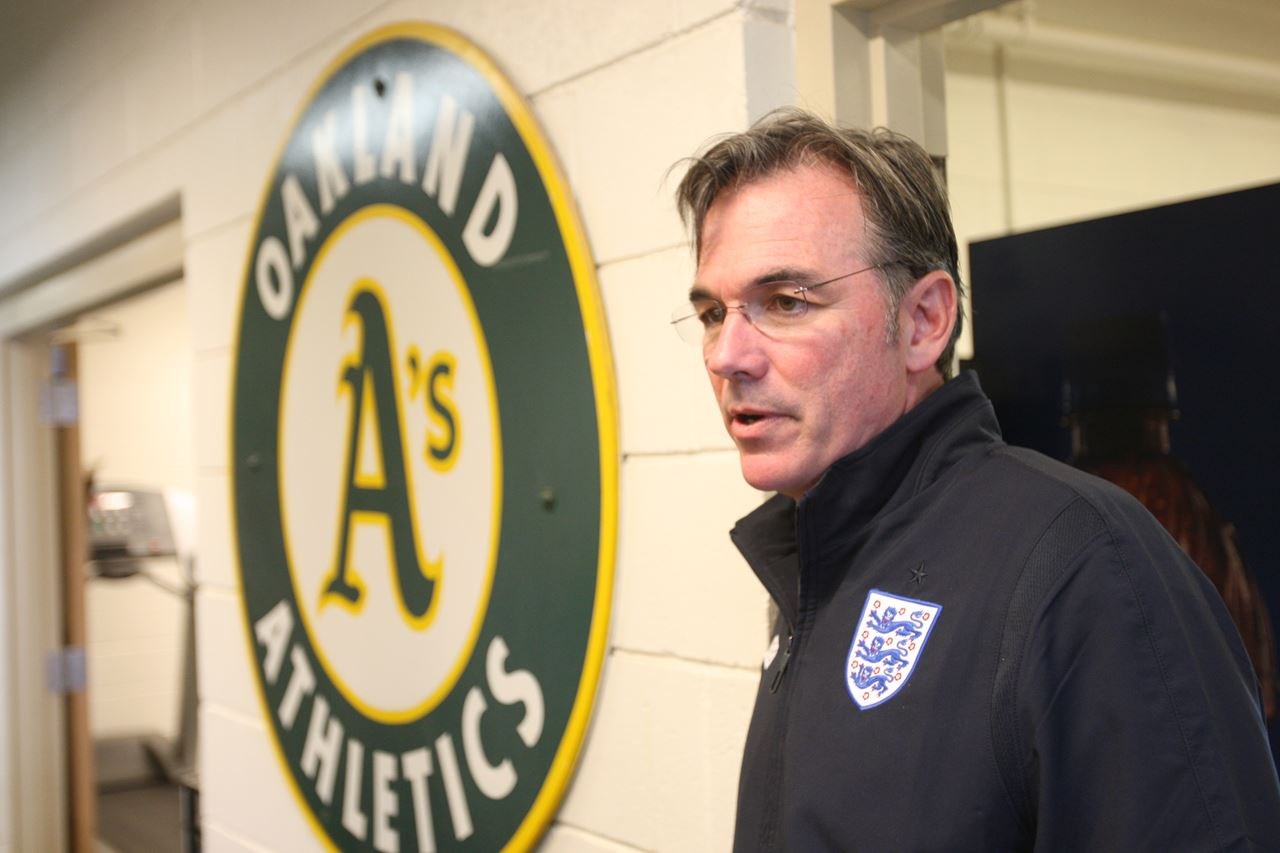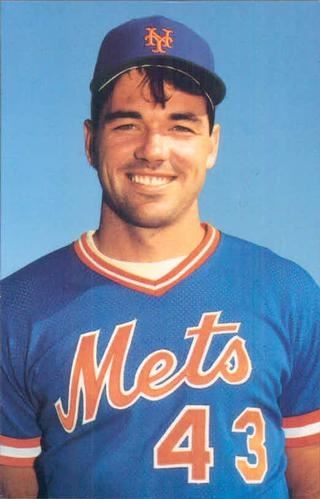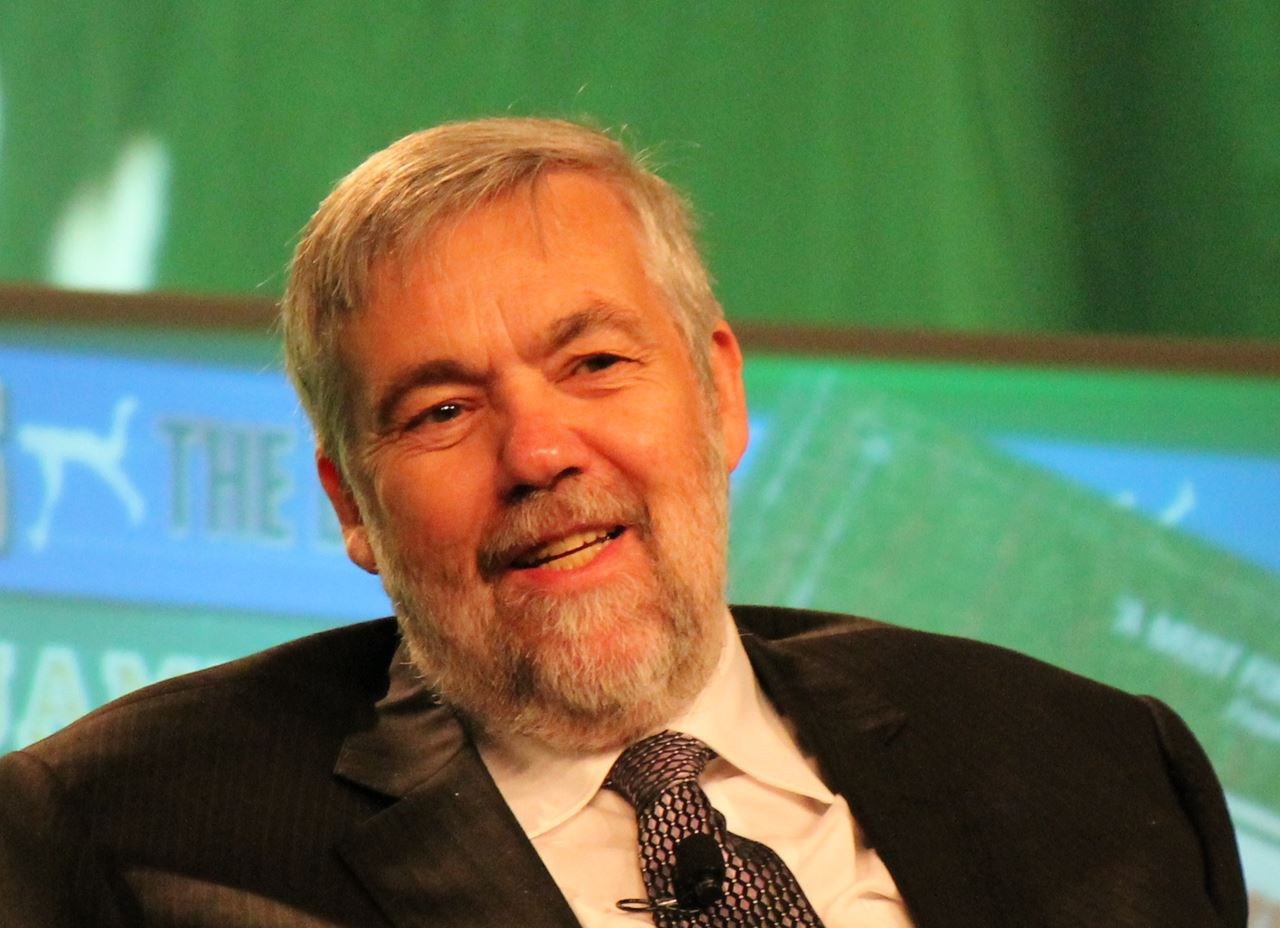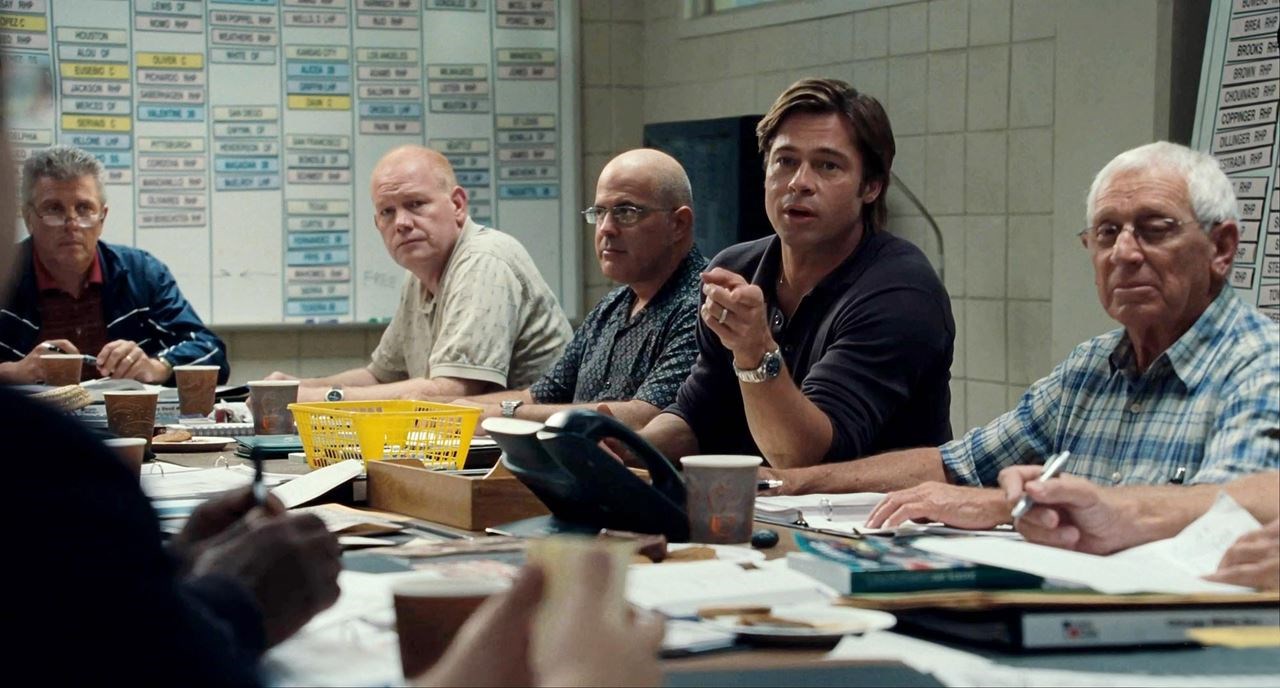16-time All-Star and 3-time Most Valuable Player, Mickey Mantle, once said, “It’s amazing how much you don’t know about the game you’ve been playing all your life.” Many people in attendance at Game 5 of the 2001 Playoffs American League Division Series wondered the same thing. The 56,562 people sitting in frigid Yankees Stadium wondered, how are we losing? The New York Yankees, with a team payroll of $114,457,768 versus the Oakland A’s, with a payroll of $39,722,689. How they asked? The question that those shocked New York Yankees fans should be asking is who, not how. Only one person could pull that off; having a payroll difference of 75 million dollars and still managing to win more games than the Yankees in an insanely competitive division that boasts teams such as the A’s, Mariners, Rangers, and that year’s World Series Champion Anaheim Angels. The answer is simple; Billy Beane. The person in charge of the A’s magnificent season is general manager Billy Beane, a baseball legend. Beane leading the Oakland A’s to so many terrific seasons despite the odds can only be considered heroic. Before we move along too fast, we must discuss what makes a “hero” in the game of baseball. Is it games won, MVP awards, Triple Crowns, and World Series wins? Or, is it character traits, impressions, valiant efforts, and lasting impacts on the game? I firmly believe that it’s a mixture of both. For a baseball character to be considered a hero, that person must have a respected reputation as a leader, a lasting impact on the game’s integrity, and significant accomplishments to prove their greatness. A player may win every talent based reward, but falls short in the character category; that player is disrespectful to his coaches and teammates, lacking in work ethic, and rude to his fans. Now, that person is not a hero. A baseball figure should be considered a hero if they are innovative, display confidence and leadership, and have the stats to prove their greatness.
 Beane at the Oakland A's GM officesMichael Zagaris/ Getty Images
Beane at the Oakland A's GM officesMichael Zagaris/ Getty Images
Billy Beane was a failure of a baseball player, plain and simple. Beane was drafted in the first round of the 1980 MLB Draft, where he went to play six years in the Major Leagues, playing for four different teams along the way. Not once did Billy bat above a .270 batting average, which is considered a mid-level standard in the majors. In only one season did Billy hit a home run. Who would have known that one of the biggest draft busts in Major League history would go on to make history as one of the most influential baseball minds ever? Billy Lamar Beane was born on March 29, 1962, in Orlando, Florida, but he was raised in San Diego, where he attended Mount Carmel High School. Beane was a standout baseball player and was drafted into the Major Leagues. After leaving a disappointing trail behind in the majors, Beane asked the Oakland A’s for a job as a scout. Beane was accepted, and by 1997 he was due for a promotion. Billy was determined to forge a new path in his life as the general manager of the Oakland A’s, where he would draft, sign, and trade players for his team (Oakland A’s Profiles). Beane’s work as GM was unique and creative for his time, enough so that he and the A’s inspired author Michael Lewis to write a book about their magical ways, titled Moneyball: The Art of Winning an Unfair Game. The book ventured behind the scenes of the 2002 MLB season, where the Oakland A’s won a record 20-straight games and won their division, despite only having a total payroll of 40 million dollars compared to the New York Yankees’ payroll of 114 million dollars (Gale Database). Beane changed the game of baseball for good, introducing statistical evidence into his selection of players and proving that baseball has more than one way to win. Billy Beane stands out as a true baseball hero because he demonstrates innovation as the general manager of the Athletics, he utilizes his determination to overcome obstacles and portrays confidence as a leader.
 Billy Beane on the New York MetsTrading Card Database
Billy Beane on the New York MetsTrading Card Database
The word innovative means to feature new methods; advanced and original. Billy Beane exemplifies innovation as general manager for the Oakland A’s. Beane’s innovation is shown by his idolization of Bill James. “James also had something general to say to Billy, or any other general manager of a baseball team who had the guts, or the need, to listen: if you challenge the conventional wisdom, you will find ways to do things much better than they are currently done.” (Lewis 98). Bill James is Beane’s idol. James invented sabermetrics, which is a new way to analyze how the game is played and how baseball games are won. James pioneered sabermetrics in the 80’s by printing the Bill James Baseball Abstract every year. Each year, the book was filled with hundreds upon hundreds of pages about sabermetrics, with traces of creativity and innovation laced through the pages. Beane looked up to Bill James, and the root for all of the work Beane did for baseball lies in the ways of James. James told the baseball world to take a second look at what they have all believed and change their mindset of how the game is played. Billy took that a step further and developed a full team of the statistical-based players, and found a way to win. Billy Beane also displayed innovation through his approach to changing the A’s. “The idea that you can create a template that will work forever doesn't happen in any business. There's some really, really bright people in this business. You can't do the same thing the same way and be successful for a long period of time,” (Beane). This is the definition of innovation. To make changes in something established, especially by introducing new methods, ideas, or products. At some point, the A’s had to change their ways. The days of Jose Canseco and Mark McGwire bashing the ball all over the ballpark was over. Billy had to scratch the old template of the A’s and start one from scratch. Beane’s knowledge of Bill James and the game of baseball helped him innovate and change the Oakland A’s for the better, starting with sabermetrics and different criteria for players.
 Bill James at a Red Sox management confernceBostinno
Bill James at a Red Sox management confernceBostinno
The definition of confidence is the feeling or belief that someone can rely on someone or something, firm trust. Billy Beane displayed confidence as a leader by relying on his team and trusting that all of his tough work would pay off in the end. The Oakland A’s were in 3rd place in the ultra-competitive AL-West division all the way through August 19th, 125 games into the season. Beane wasn’t discouraged. “Look, Steve, I don’t think our record right now accurately represents the strengths of this team and where we are going to be at the end of the season. Paul and I here feel very strongly that if we stay on the track we’ve chosen, we will accomplish our goal, which is being within 7 games of first by mid-July… (When asked “What are you afraid of?”, Billy says,) Nothing. That’s why I am here. That’s what I do. That’s why I wake up in the morning,” (Sorkin). After Billy spoke with the A’s owner, the A’s set an American League record 20 game winning streak, which propelled them into 1st place, which is where they stood and cruised into the playoffs. Billy is confident in what he has created and will stick through the process no matter the cause. Billy has confidence in his players, so much so in that one of the previously thought “worthless” players, first baseman Scott Hatteberg, hit the game-winning home run to give the A’s their record 20th straight win. Players can trust a GM who is confident in his players. Beane also displayed confidence at the 2002 MLB Draft, where the A’s used their seven first-round selections to draft players who they believed fit the mold of what Beane had created. “Billy is now on his feet. He’s got Swisher in the bag: who else can he get? There’s a new thrust about him, an unabridged expression on his face. He was a bond trader, who had made a killing in the morning and entered the afternoon free of fear. Feeling greedy. Certain that the fear in the market would present him with even more opportunities to exploit. Whatever happened now wasn’t going to be bad. How good could it get? The anger is gone, lingering only as an afterthought in other people’s minds. He was no longer in the batter’s box. He was out in center field, poised to make a spectacular catch no one expected him to make.” (Lewis 113). After Beane used his general manager experience and relations to finesse his way into the 15th pick, the A’s selected top prospect Nick Swisher. Swisher is just what Beane needs, a player with a certain swagger about him, one who is confident and a leader for his team. After all of his dominoes fell into place, Beane’s aurora can be felt all throughout the room. His fellow scouts, assistants, managers, and players feed off his positive energy and confidence. Beane’s positivity in tough times and his ability to lead his team is why Beane is a hero.
 Billy Beane, as portrayed by Brad Pitt, in the film MoneyballMoneyball
Billy Beane, as portrayed by Brad Pitt, in the film MoneyballMoneyball
Billy Beane is a hero and historical figure in the game of baseball, which can be shown by his bountiful statistics: 1,761 wins, nine playoff appearances, one American League Championship Series appearance, two MVP winners, one Cy Young Award winner, and three Rookie of the Year winners. However, Beane’s characteristics play a more substantial part in his heroic role as general manager of the Oakland Athletics. Those aspects include innovation and confidence. Innovation is defined as featuring new, advanced, and original methods. Billy Beane highlighted a new and improved way to gather talent for his team, using advanced statistics called sabermetrics. These sabermetrics were created by Bill James, an idol of Beane’s. Beane has a niche for finding unique characteristics in players that other GM’s can’t, thus making him innovative. Billy Beane is also such a respected and touted GM because of his confidence. Beane showed how a leader must be confident so his players and coaches can trust his judgments, which is especially crucial for Billy Beane, whose decisions were already controversial. When asked what Billy is afraid of, he replied, “Nothing. That’s why I am here. That’s what I do. That’s why I wake up in the morning,” (Sorkin). This is the perfect description of Beane’s confidence. Everyday Billy came to play, and every team in baseball needs a leader like Beane. Before watching the movie Moneyball and reading the companion book, I was only used to “old-school” type baseball. Old-school baseball is played by sacrificing runners over, paying big bucks for deserving talent, and playing the game rough. After watching Moneyball and reading the book, I was introduced to a whole new type of baseball. For a baseball-based brain as such as mine, it was fascinating to see that there is more to baseball than meets the eye. I was incredibly impressed with how the A’s have changed baseball, and I love how it adds diversity to the game and how it’s played. I am fascinated by the concept of “Moneyball,” and I love to be able to see the game in a different light and challenge the conventional baseball wisdom. “It’s amazing how much you don’t know about the game you’ve been playing all your life.” The footprint Billy Beane has left on the game of baseball will stick for years and years to come, and his actions have empowered and inspired a new generation of sabermetricians to go out and challenge the fundamental foundation America’s most celebrated pastime.
Page created on 2/26/2018 12:22:09 AM
Last edited 2/26/2018 1:02:23 AM
